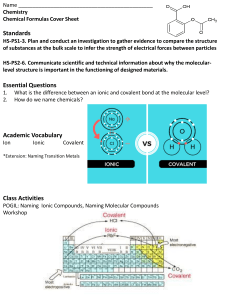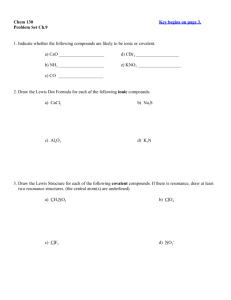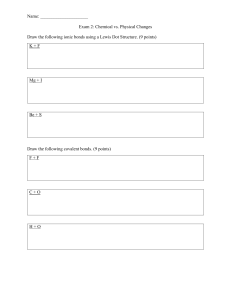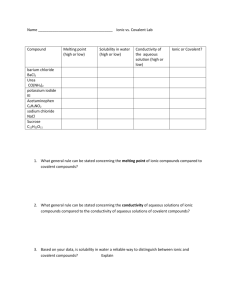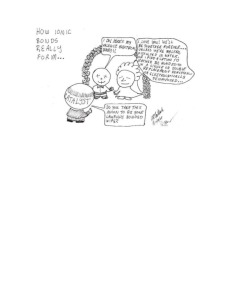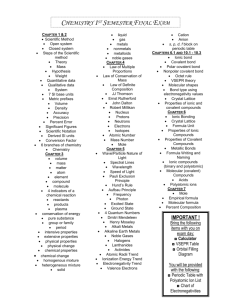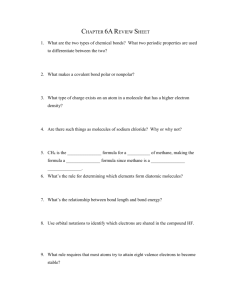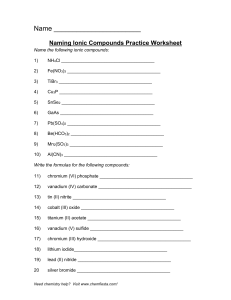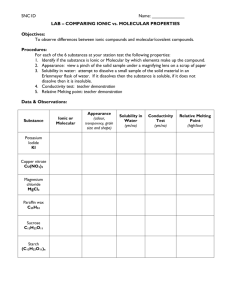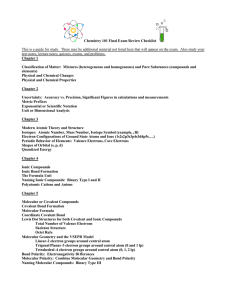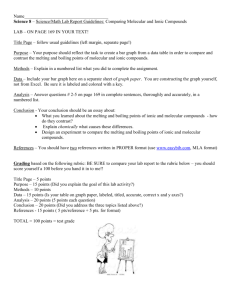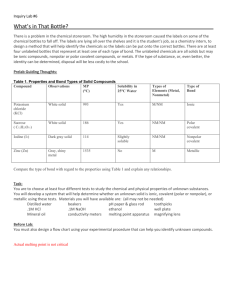ionic/cov. lab class instructions - Thames Valley District School Board
advertisement
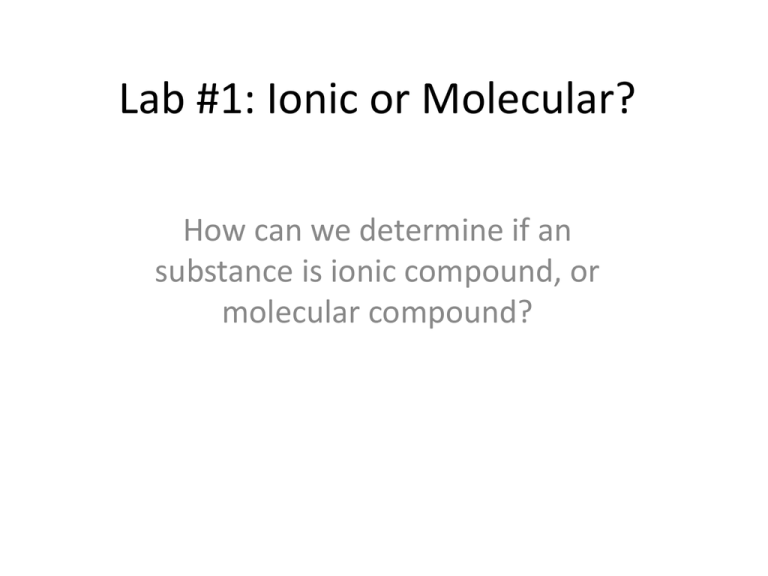
Lab #1: Ionic or Molecular? How can we determine if an substance is ionic compound, or molecular compound? Create a flowchart comparing ionic and covalent compounds Based on what we now know, what can we predict about their chemical and physical properties?? Question; What physical properties are associated with ionic compounds and molecular compounds and why? Materials wax Epsom salts Rubbing alcohol Sugar Vegetable oil Washing soda Conductivity tester Test tubes Water Acetate strips Magnifying glass Bunser burner (maybe) observation table use min 5 substances and conduct 5 “tests” substance Form (crystal, amorphous) wax Epsom salts Rubbing alcohol Solubility state (high, low) Ionic or covalent Conclusion T-chart comparing compounds and their; components, state, relative melting points, odour (strong or weak), conductivity, form, intermolecular bond strength, intramolecular bond strength and why they exhibit each Covalent molecules property. Ionic compounds Eg. Composed of metal and nonmetal when electron(s) transfer from cation to anion Usually solid state due to… Weak intermolecular bond due to… Composed of non-metals when…
